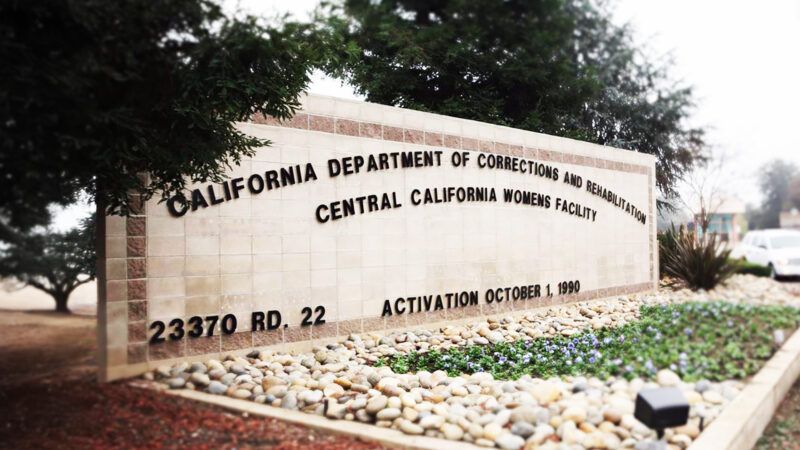Women Allegedly Raped in Prison by Trans-Identifying Inmate Will Have To Refer to Attacker as 'She/Her'
The recent ruling means that on the stand those women may be subject to speech policing from their alleged rapist—who has opted for self-representation.

Women who allege they were raped in a California prison by a biological male claiming to be transgender will be compelled to refer to the defendant using she/her pronouns, a Madera County judge ruled last week, further complicating a case centered on a crime that was emboldened from the outset by the government.
Tremaine Carroll allegedly raped multiple inmates while at Central California Women's Facility in Chowchilla after securing placement there by self-identifying as transgender. The Transgender Respect, Agency and Dignity Act, which took effect in January 2021, allows California inmates to be placed in a facility corresponding with the sex they say they are. Under the law, a prisoner need not be on hormones, have had surgery, or undergo a psychological evaluation to be approved. The government considers their testimony sufficient.
In 1990, Carroll was charged with three counts of kidnapping for ransom, two counts of robbery, and three counts of oral copulation in concert by force, ultimately pleading guilty to two counts of kidnapping. Several years later, Carroll was sentenced to 25 years to life under California's three-strike law after acting as a getaway driver in a robbery.
"After his first cellmate became pregnant and was moved to Los Angeles, two other cellmates of his had complained that he had raped them," Madera County District Attorney Sally Moreno told the local ABC affiliate. One of those cellmates says Carroll attacked her while she was in the shower. "This is a particular issue in this case because it's confusing to the jury," Moreno added. "In California, rape is a crime that has to be accomplished by a man."
It may be disorienting to the alleged victims, as well, who will be vulnerable to speech policing from the judge—or directly from Carroll, their alleged rapist, who has opted for self-representation. Charged with two counts of rape and one count of dissuading a witness from testifying, Carroll has since been transferred to Salinas Valley State Prison, a men's facility.
Prison rape is sadly a problem that attracts limited public outrage and is by no means constrained to women's prisons. Though precise statistics are hard to track, as such assaults sometimes go unreported, a 2012 report from the Justice Department estimated that over 200,000 inmates were sexually abused behind bars in one year alone. Many of those occur in men's prisons or happen to women at the hands of government employees. Those cases matter just as much.
But Carroll, who deserves a fair day in court, may be a fairly ominous cautionary tale. "It is our sworn duty to protect people from sexual assault and violence," Ralph Diaz, then the secretary for the California Department of Corrections and Rehabilitation, said in a 2020 statement about the Transgender Respect, Agency and Dignity Act. He added that the law would "codify our policies for the screening, treatment, and housing of this population as required by the Prison Rape Elimination Act." In other words, in seeking to comply with the federal law meant to eradicate prison rape, California allegedly encouraged it.


Show Comments (104)